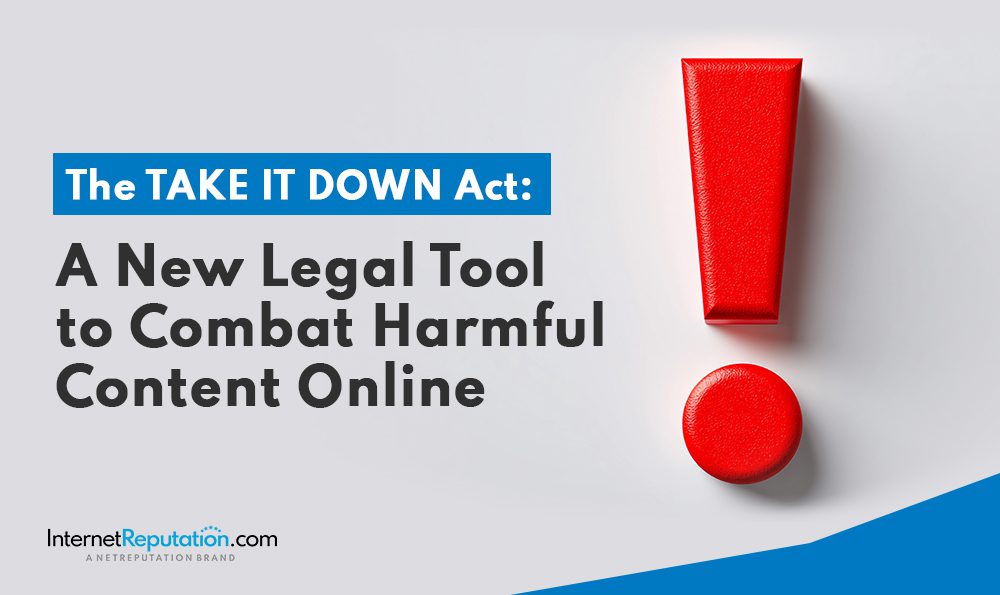5 Things You Should Do Every Day to Defend Your Online Reputation

There are things you can do each day to protect and defend your online reputation. Read on to learn more.
Your online reputation isn’t static. It changes every single day, based on the things you’ve done to protect yourself and the things others have done to attack you. That means winning the reputation war involves a daily to-do list. You’ll need to make sure that your protection strategies are just a little bit better than the steps your enemies take in order to harm you.
What should go on that to-do list?
How to defend your online reputation
1. Google yourself
One of the quickest and easiest ways to take your reputation pulse is to run a daily search on Google. Skim through the results on the top three pages that come back on a search for your name and your location, and make sure that you don’t see anything there that you don’t like. That means no:
- Nasty blog posts from former coworkers
- Intimate photographs you didn’t mean to share with the world
- Ripoff reports
- Mugshots
- Lawsuit records
If you see any data like this, you’re in reputation trouble. After all, these are the same kinds of bits of information others will see when they run searches for you. If you’d like to have a great reputation, you’ll need to keep those search results clean.
2. Check all of your social media profiles
Almost every single adult in the United States goes on a social media site at one point or another (in fact, the Pew Research Center says 74 percent of adults who go online use at least one social networking site). These are the spaces in which you share your intimate hopes and dreams with your friends. But, these can also be the spaces in which your enemies attack you publically.
Every day, you should take a spin through each site in which you have a profile. Look for:
- Negative comments
- Nasty photographs in which you’ve been “tagged”
- Intimate stories that include your name
- Details about your private behavior (like drinking) that you’d rather keep private
Even if your profile is secure and private, you’ll need to delete all of these posts, just so you’ll be absolutely sure that your reputation is secure.
3. Zip through your review sites
If you’re running a business of any sort, you’ve probably got a listing on a review site. And research from BrightLocal suggests than 73 percent of consumers trust businesses more when they have positive business reviews.
In other words, if people chat up your company and say good things online, good things are bound to happen to your business. And the reverse is probably true, too. Don’t have time to look through your review sites everyday?
Our review management software can monitor all your reviews for you and alert you of positive and negative reviews. So, as part of your checkup, you should take a pass through all of these review sites and make sure that you’re happy with the new reviews you see. If you see something you’re not pleased with, you’ll need to take immediate action to stop the attack before it gains traction. (Check out my blog post here for some great ideas on how to respond to an unfolding attack.)
4. Write one piece of content
One of the best ways to win a reputation war is to ensure that you’re the source of really good information about you and the great things you’re doing. That sea of positive content, all about the greatness that is you, can help to wash away an attack based on your faults and mistakes.
But it only works if you actually write content.
So each day, set aside time to create content, such as:
- Writing a blog post
- Adding an article to LinkedIn
- Updating your status on Facebook
- Sending out a tweet
- Pinning a photograph on Pinterest
These little snippets of content should tell the world about your good deeds and your excellent skills. And you should be creating them every single day.
Here’s an added bonus: Research suggests that good news is shared more often than bad news on social media sites. So if your updates are about happy things, like promotions or new products or great feelings, they’ll be more likely to spread, when compared to anger-filled rants. So go ahead: Share the good stuff!
5. Do something nice for someone else
Building a good reputation is easier when you’re actually, you know, a good person. Spend a little time every day doing something nice for someone else. Walk a neighbor’s dog, send your mother a card, donate your time to your child’s school or give a few dollars to the homeless. You may not be able to parlay this into great copy for your content creation efforts, but you just might build up an in-person reputation as a great member of your community. And that could help you a great deal, if you do come under attack. You’ll have people who will want to help you, and you just might need that help.
Ready to defend your online reputation?
Ready to get started? We’re here to help. Click here to find out about the monitoring solutions we offer. They could help you handle most of these steps in a snap, with no extra work required.



